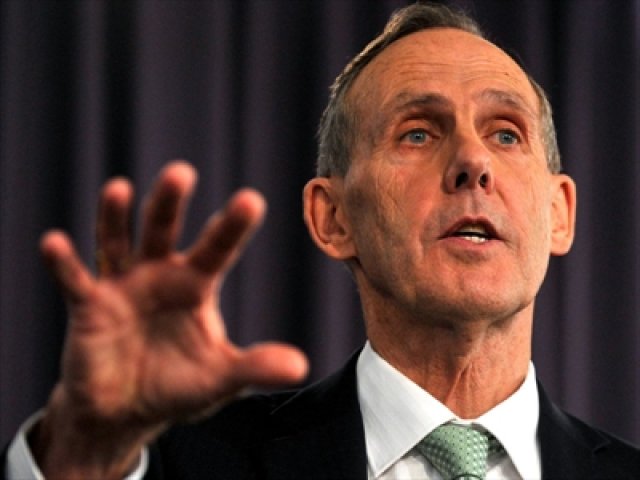
A vote on the Labor government’s harsh proposed changes to Australia’s migration laws was postponed until October 11, after parliament failed to vote on them on September 22.
This followed a bizarre twist in the farcical refugee debate on September 19 when new laws were passed increasing refugee protection at the same time as the government pushed forward with its plans to expel refugees to Malaysia.
The new law expands the definition of who can qualify as a refugee and strengthens Australia’s obligations not to return people at risk of danger to their place of origin. However, these protections will apply only to people whose asylum claims are heard in Australia.
Despite dissent from Labor’s Left faction, the Labor caucus backed PM Julia Gillard’s introduction of legislation to legalise the “Malaysia solution” beyond legal challenge and remove many requirements to protect human rights from the migration act.
The government’s original plans were thwarted on August 31 when the High Court upheld a legal challenge from refugee rights lawyers that said deporting refugees to Malaysia was unlawful due to the fact that Malaysia provided no legal protection to asylum seekers. The ruling also cast doubt on other forms of offshore processing.
The Asylum Seeker Resource Centre’s website, Championsofchange.org.au, said on September 22 that under the government’s proposed changes, “the Minister for Immigration sits above the law and is able to send asylum seekers to anywhere they choose without evidence that it’s safe to do so…
“All the Minister must to do is ‘have regard to’ whether or not a country has given him ‘assurances’ that people will be safe and have their claims processed in accordance with the Refugee Convention.”
Despite his staunch support for offshore processing, opposition leader Tony Abbott rejected the government’s proposal, insisting his plan to detain refugees on Nauru was better policy. He also hypocritically cited the human rights of refugees as a reason to reject the Malaysia plan, Sky News said on September 20.
The Greens rejected the changes on the grounds they were “illegal, expensive and inhumane”, Greens leader Bob Brown told The Australian on September 19.
Greens immigration spokesperson Sarah Hanson-Young said on September 21 that the debate was “a race to the bottom between the sell-outs and the hypocrites, between Julia Gillard and Tony Abbott trying to prove who can be the toughest, the meanest, the nastiest”, AAP reported.
The Refugee Action Collective (RAC) of Victoria called on Labor MPs on September 20 to cross the floor of parliament and vote against all legislation that legalised offshore processing. RAC also demanded an end to mandatory detention in Australia and for refugees to be housed in the Australian community while their claims were being processed.

The debate between the government and opposition has stretched the limits of logic in both sides’ attempts to maintain the charade that their policies contain significant differences.
The reality is the policies of Labor and the Coalition are driven by naked self-interest. The unpopular Labor government is desperate to regain any kind of appearance of competence, while the opposition’s well-tried formula is to spoil any such efforts.
Since the 2001 election campaign, the Coalition has used racist hysteria over the small numbers of refugees arriving by boat as an electoral tool. The Murdoch media predictably played their part in manufacturing the refugee crisis, breathlessly reporting the collapse of Australia’s borders and the invasion by hordes of boat people.
The ALP has consistently refused to challenge this racist myth-making, instead preferring to compete with the Coalition on being tough on refugees. Interestingly, in the 2007 elections, when Labor campaigned with policies (mostly never implemented) to lessen cruelty to refugees, it achieved its best result in the past 15 years.
In 2010, while the ALP and Coalition competed on being tough on refugees, the Greens and pro-refugee independents won the biggest gains in votes. However, refugees provide too convenient a scapegoat for other government and corporate failures, so the ALP meets the Coalition’s mantra of “stop the boats!” with its own mantra, “break the people smugglers’ business model”.
In a Sydney Morning Herald article on September 17, Immigration minister Chris Bowen laid out what he said were “humanitarian reasons” for processing refugees offshore. He cited the dangers of boat travel and used the myth of the refugee queue to suggest people who arrived by boat were being unfair to those who remained stuck in transit countries.
He also used the stereotype of the dodgy boat person to suggest refugees were exploiting Australia by using their legal rights to “use every available appeal mechanism to delay or avoid return” to their home country.
If Bowen were genuinely interested in “breaking the people smugglers’ business model”, the government would have long ago made moves to bring people to Australia safely for processing, rather than shredding basic human rights.
Public anger is beginning to grow against the junking of human rights by the government. Bowen’s car was chased by protesters for a kilometre after they shouted down his press conference in Sydney on September 17, the SMH said that day.
The increasingly blatant hypocrisy and self-interest in the debate has brought derisive comments from establishment figures and the normally compliant mainstream media.
Former Liberal PM Malcolm Fraser told the ABC on September 22: “The political leaders seem to have struck into the redneck nerves and the minority of Australians and they’re paying for that and ignoring, I think, a huge majority of people that hate what they’re doing.”